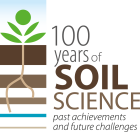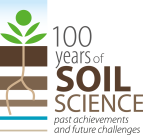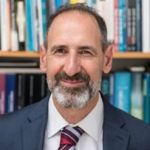
Salvatore Aricò
The role of soil in the global policies
Salvatore Aricò was appointed Chief Executive Officer of the International Science Council in January 2023. Previously he led the ocean science portfolio at the UN Intergovernmental Oceanographic Commission, was executive secretary of the UN Secretary-General’s scientific advisory board, senior science officer at UNESCO, senior research fellow at the United Nations University, chief of programme at the Convention on Biological Diversity and researcher at the University of Delaware. A biologist and oceanographer by training, he has (co)authored close to 100 scientific and technical publications and has been involved in journals’ editorial committees / acted as book editor. His current academic engagements include affiliate professor at the Parthenope University of Naples and the International Institute of Diplomacy and Sustainability at UCSI University in Malaysia, and the supervision of graduate students.

Axel Cerón González
Who constitutes the future of soil sciences? – Gender, age, and citizenship among the Young and Early Career Scientists
Axel Cerón González is a Mexican soil scientist and environmental historian. He was elected vice-chair of the IUSS Young and Early Career Scientists Working Group, which he co-promoted to establish in 2022. His collaborative soil education initiative “Proyecto Suelox” –aimed at Spanish-speaking young soil scientists, received global recognition when honored with the FAO’s King Bhumibol World Soil Day Award in 2022. Axel earned an Erasmus Mundus Master in Soil Science and currently leads a joint doctoral degree exploring long-term soil-human relationships in Mediterranean terraced landscapes.

Alfred Hartemink
Early international connections in the development of soil science
Alfred Hartemink is past-Chair and Professor of Soil Science at the Department of Soil Science at the University of Wisconsin – Madison, USA. He teaches Pedology and Introduction Soil Science. His research focusses on digital soil morphometrics, soil mapping, and soil carbon in relation to real-world problems. Prior to his current position he was senior researcher at ISRIC–World Soil Information (Netherlands), and coordinator of the GlobalSoilMap project. He has worked as pedologist and soil fertility specialist in Tanzania, DR Congo, Indonesia, Kenya, Australia, and Papua New Guinea, and for shorter periods in several other countries. Alfred was (Deputy) Secretary General of the IUSS between 2002 and 2014.
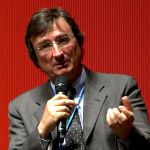
Luca Montanarella
Protecting soils for future generations: The Development of Soil Policies in Europe and in the World
Studied agricultural sciences at the University of Perugia, Italy. Post-doctoral studies at the University of Leiden, The Netherlands. From 1992 till 2023 scientific officer of the European Commission. Leading the Soil Data and Information Systems activities of the Joint Research Centre in support to the EU Thematic Strategy for Soil Protection and numerous other soil related policies, like the Common Agricultural Policy (CAP), the UNCCD, UNFCCC, CBD, etc…
Responsible of the European Soil Data Centre (ESDAC), the European Soil Information System (EUSIS), the European Soil Bureau Network (ESBN) and the EU Soil Observatory (EUSO).
In 2011 supporting the establishment of the Global Soil Partnership (GSP) at FAO.
Currently chairing the International Network of Soil Information Institutions (INSII) of the GSP.
Winner of the Glinka World Soil Prize in 2020. Member of the Academy of Agricultural Sciences of France. Member of the Academy of Agricultural Sciences of Slovakia. Doctor Honoris Causa of the Academy of Agricultural Sciences of Bulgaria.
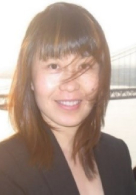
Xin Song
Soil Health towards the Realization of Sustainable Development Goals: Progress and Trends in China
Dr. Xin Song is a Professor in the Institute of Soil Science, Chinese Academy of Sciences (CAS) and the University of CAS. She is the Vice Chair of Division 4 for the International Union of Soil Sciences and the Deputy Secretary General of Soil Science Society of China. Prior to joining CAS, she worked for ARCADIS U.S. as a hydrogeologist and environmental engineer. Dr. Song holds a doctor’s degree from University of Maryland, College Park. She specializes in the occurrence, fate and transport, and remediation of emerging PFASs, and sustainable remediation of soil and groundwater contamination.
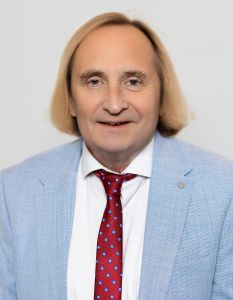
Division 1
Alex. McBratney
The Evolution of Pedology – Drawing from the Past, Adapting to the Future
Alex McBratneyis Professor of Digital Agriculture and Soil Science at the University of Sydney in Australia. He holds BSc, PhD and DSc degrees from the University of Aberdeen in Scotland specializing in soil science, and the DScAgr degree from the University of Sydney for research in precision agriculture. He has made major contributions to soil science through the development and promotion of the concepts of Pedometrics, Digital Soil Mapping, Precision Agriculture and Soil Security. Alex is a Fellow of the Australian Academy of Science and is recognized as a Clarivate Highly Cited Researcher (2016-2023). In 2014 he was awarded the VV Dokuchaev Medal by the IUSS. He has served the IUSS by instigating several Working Groups, and as Working Group and Commission Chairs, Divisional Vice Chair and Deputy Secretary General. He was Editor-in-Chief of Geoderma for 25 years and is currently E-i-C of Soil Security. At present he is helping to develop and promote the concepts of Soil Security and Digital Agriculture.
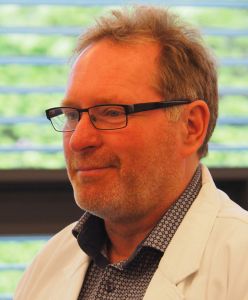
Division 2
Georg Guggenberger
Soil properties and processes – Rethinking the transformative power of soil
Georg Guggenberger is a Geoecologist graduated at the University of Bayreuth, Germany, with a major in Soil Science under the supervision of Prof. Wolfgang Zech. This combination of soil science and geoecology strongly influences my academic career. I consider soils as a complex natural body, which is in tight interactions with other spheres of the environment. Therefore, I always try to link my basic soil research to the impact that it might have in a larger context. This refers for example to the understanding of controlling mechanisms of sorption of dissolved organic matter und different climatic conditions with to the water quality in ground and surface waters. My research is funded by different funding agencies in Germany, the EU, and Russia and published in about 150 peer-reviewed manuscripts. Based on this experience I am also serving academia as member of several evaluation panels. It is very important for me to involve students into practical education. Therefore, I am organizing quite a high number of field courses besides my regular teaching.

Division 3
Jorge Batlle-Sales
From Sumerian agriculture to the agriculture of the 3rd Millenium
Jorge Batlle-Sales, hailing from Murcia, Spain, is an academic with a comprehensive educational background. He earned his Bachelor’s degree in Geochemistry and went on to obtain his PhD in Soil Genesis and Agricultural Chemistry from the Autonomous University of Madrid. In 1988, he ascended to the position of Chair of Soil Science and Agricultural Chemistry at the University of Valencia.
Throughout his career, Dr. Batlle-Sales has been involved in 23 research projects, primarily of international scope, and has directed 14 Theses. He has actively contributed to four EU COST research networks and spearheaded the organization of four International Symposia in collaboration with prominent international organizations such as IUSS, FAO, UNEP, and IAAE. Additionally, he has conducted various courses addressing issues related to soil and water salinity across multiple continents and has delivered numerous lectures and keynote presentations at conferences, seminars, and courses worldwide.
Dr. Batlle-Sales has also played a pivotal role in fostering international academic exchange during his tenure as Director of the International Relations Office at the University of Valencia from 1994 to 2000. He actively contributed to the implementation of the ECTS and ERASMUS EC programs and facilitated the establishment of Interinstitutional Agreements between the University of Valencia and foreign universities.
Currently, Professor Batlle-Sales holds esteemed leadership positions within the academic community. He serves as the President of the International Network of Salt Affected Soils (INSAS), a thematic network under the World Soil Alliance-FAO (GSP-FAO). Furthermore, he was elected President of the Commission of Salt Affected Soils of the Union International Soil Societies (UISS) in 2023.
In recognition of his outstanding contributions, Dr. Batlle-Sales was honored with the Key to the city of Mazatlán, Mexico, in 2011.
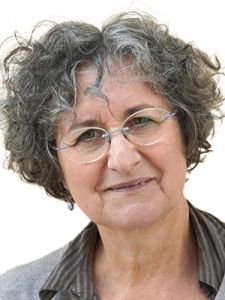
Division 4
Claire Chenu
The role of soils in sustaining society and the environment: the carbon mania?
Claire Chenu is research director at INRAE (French National Research Institute for Agriculture, Food and Environment) and consulting professor of soil science at AgroParisTech. Her research deals with soil organic carbon dynamics, stabilization processes and the effect of cropping practices on soil C stocks. She is involved in the science-policy-practice interface. She is a member the Scientific and Technical Committee of the 4 per 1000 initiative and of the ITPS. She coordinates the EU H2020 European Joint Programme SOIL: “Towards climate-smart sustainable management of agricultural soils”.
